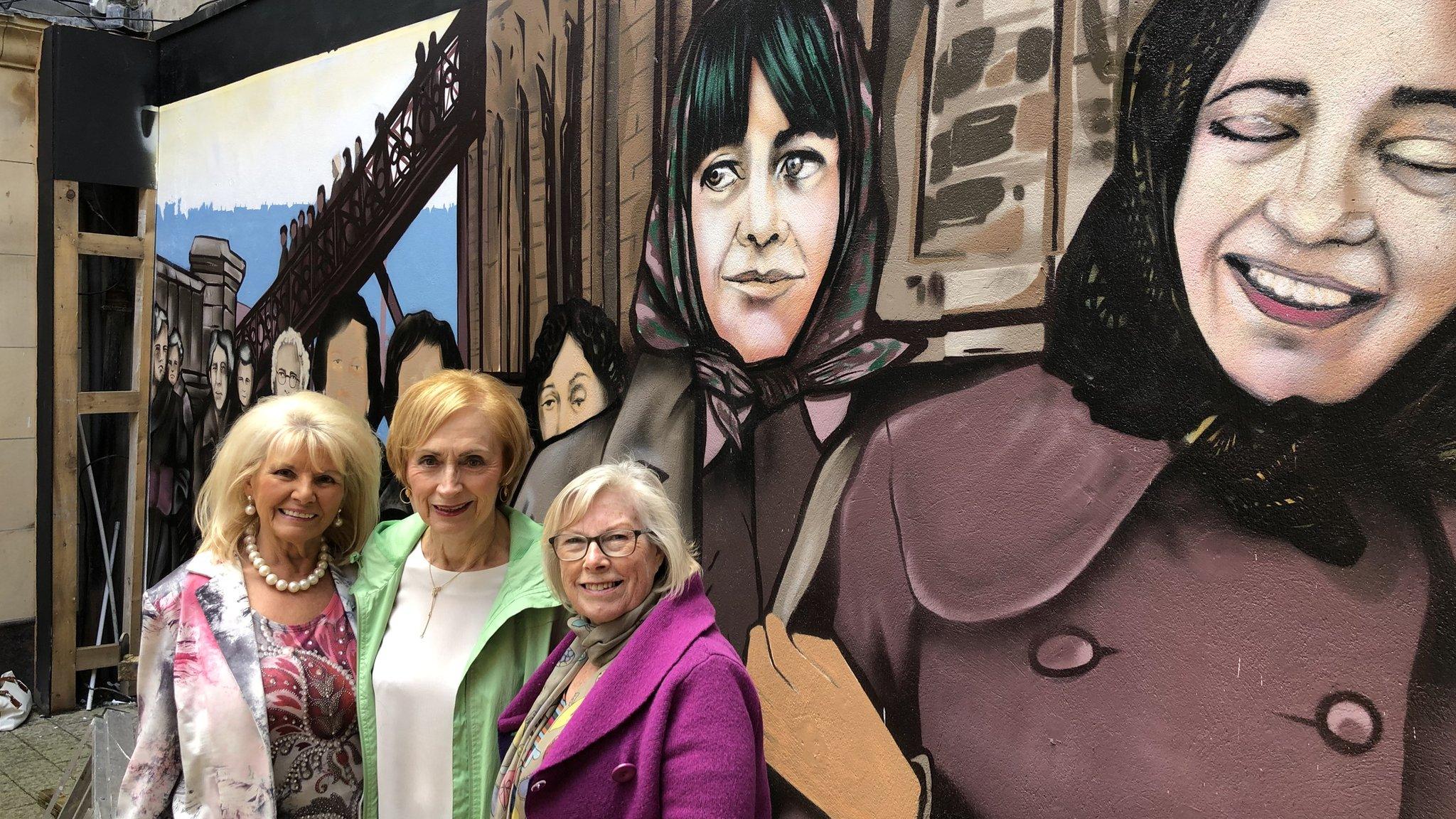Public get first look at Factory Girls artwork
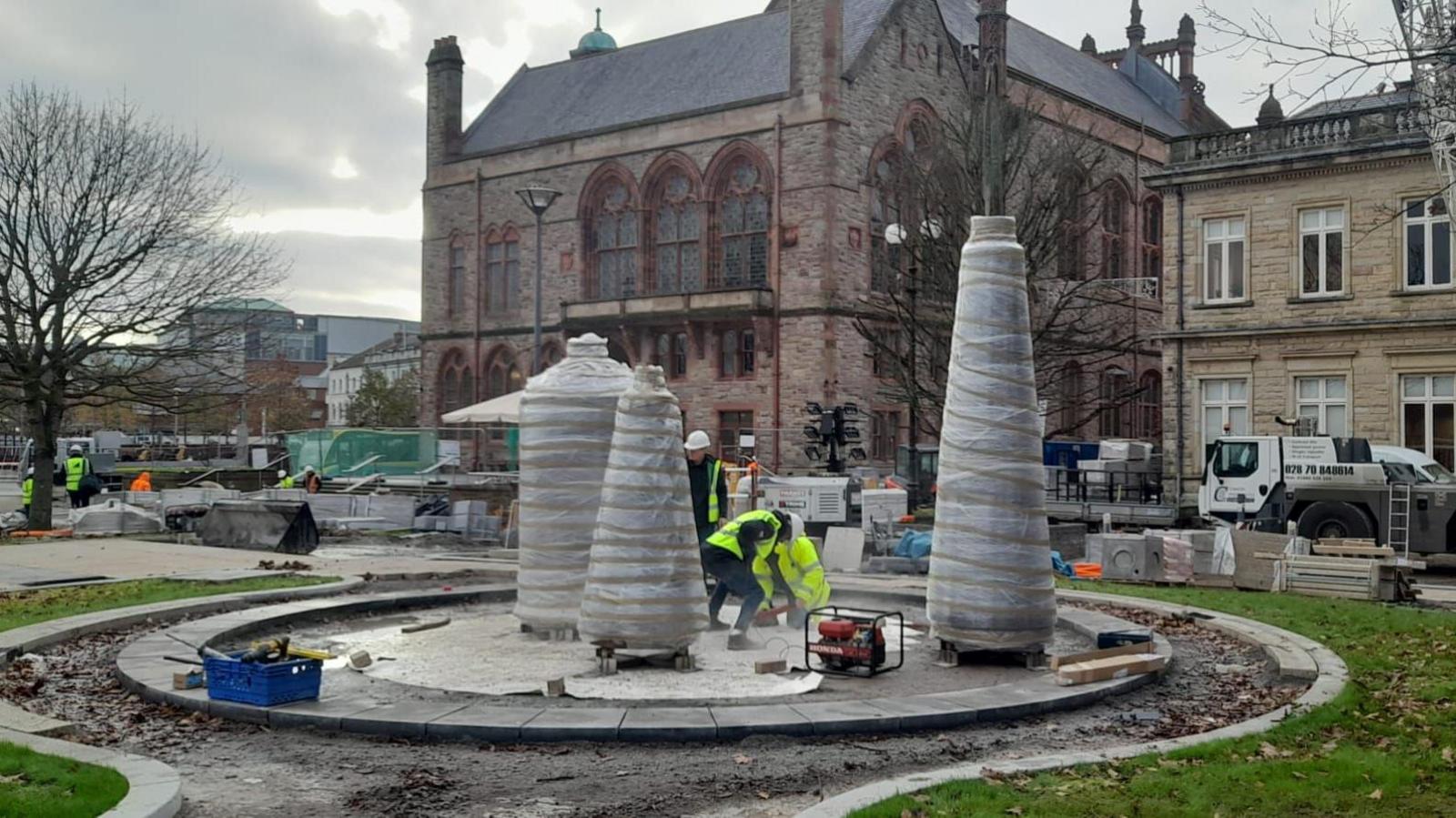
The first parts of the artwork were being fitted on Tuesday
- Published
A long-awaited piece of public art to remember Londonderry's shirt factory workers has been set in place in the city centre almost 20 years after plans for a sculpture were first mooted.
The artwork is part of the wider public realm scheme at Harbour Square, near the Guildhall.
The Derry public were given their first glimpse of the sculpture by artist Chris Wilson with the erection of its three spools on Tuesday.
They remain under wraps for now but council officials say the artwork will officially be unveiled in the new year.
Derry was a world leader in shirt production for much of the last century and the city's factory girls were the driving force.
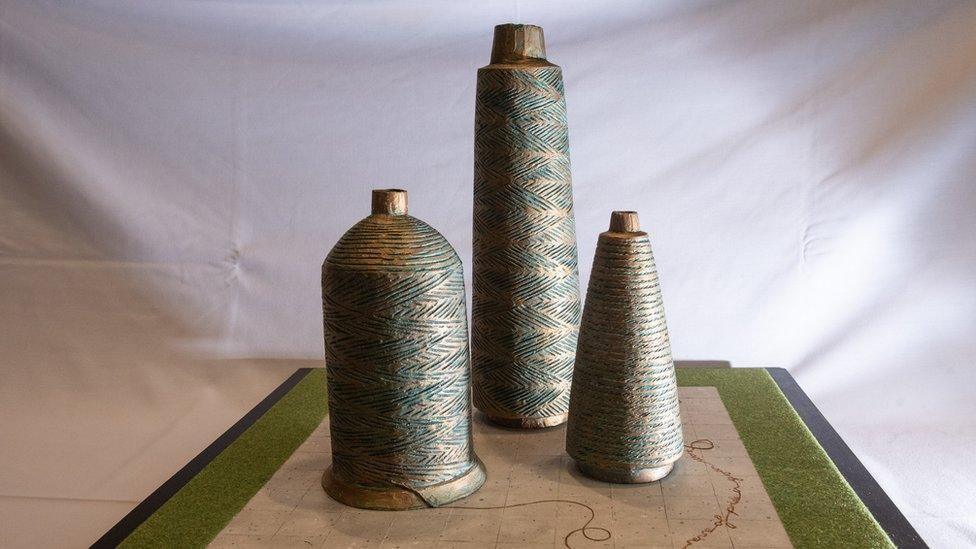
A scale model of the sculpture shows what it will look like when it is completed
In July last year, the Department for Communities (DfC) approved £1.3m of funding for the redevelopment of Harbour Square including the factory girls artwork.
A different factory girls sculpture was shelved back in 2018 when councillors were told it would cost more than £330,000 to complete.
At that time Stormont's Department for Communities, which funded the project, said it no longer represented value for money.
Artist Louise Walsh had started work on the factory girls artwork in 2006.
The sculpture was beset by problems since being commissioned by the then Derry City Council.
It was to be located at King Street in the Waterside.
That was then changed to Harbour Square due to planning problems and the move required a redesign of the original piece that meant costs spiralled.
It cost £85,000 of public money before the unfinished work was shelved.
Plans for the new piece of public art were announced in 2020.
At the time, DfC said the it would celebrate the industrial heritage of the city, particularly the men and women who worked in the factories.
What was the significance of Derry's factory girls?
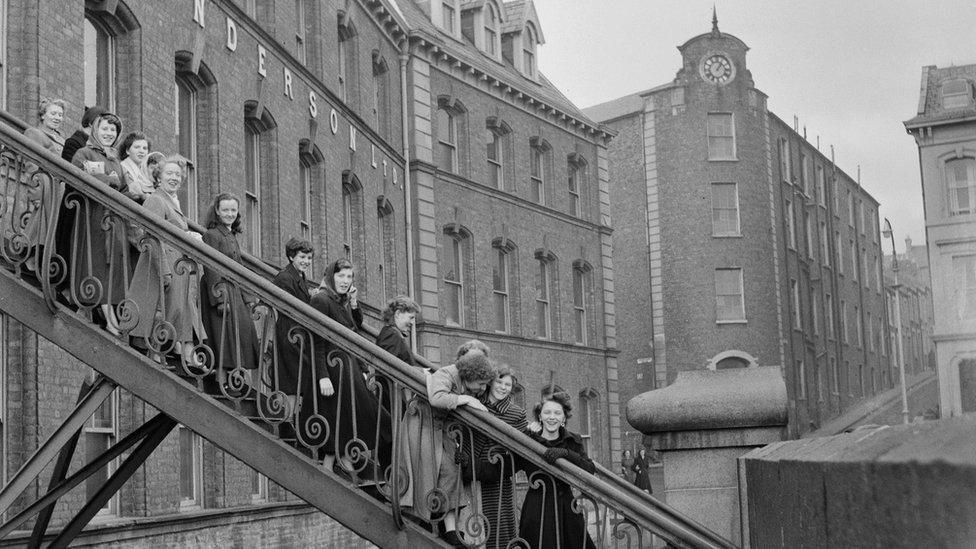
Workers leaving Tillie and Henderson's shirt factory in November 1955
Derry was historically a centre for shirt-making, with the industry developing from the late 19th Century.
By the 1920s, there were more than 40 shirt factories employing thousands of workers, with thousands more servicing the industry from their homes.
The Tillie and Henderson factory, near Craigavon Bridge, was even mentioned in Karl Marx's famous book, Capital.
The vast majority of those who did the job were women.
They were immortalised by the songwriter Phil Coulter in The Town I Loved So Well.
There were still hundreds of people employed in clothing manufacturing up to the early 2000s.
However, the industry has since been all but wiped out in the face of global competition, with one of the last traditional handmade shirt makers in Britain and Ireland closing in May 2019.
Related topics
- Published21 September 2019
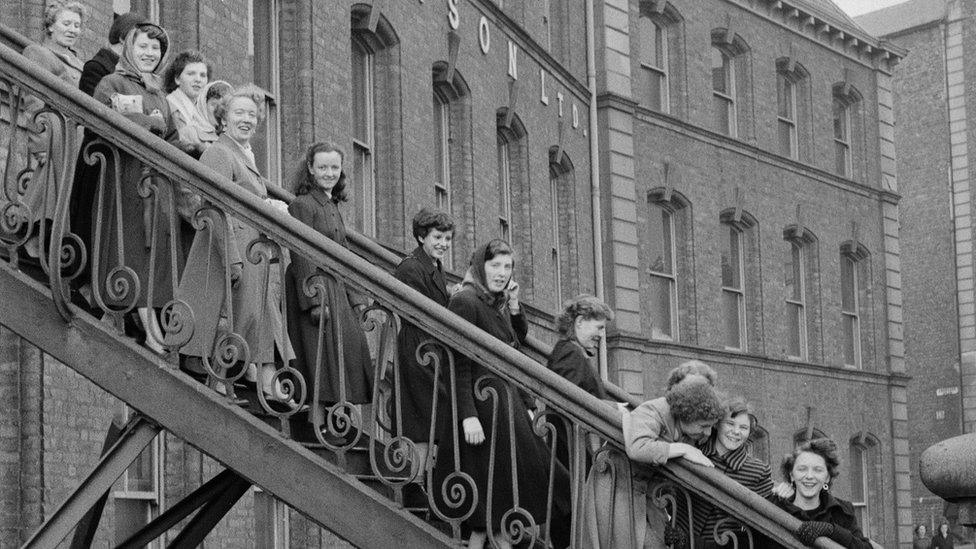
- Published22 August 2019
